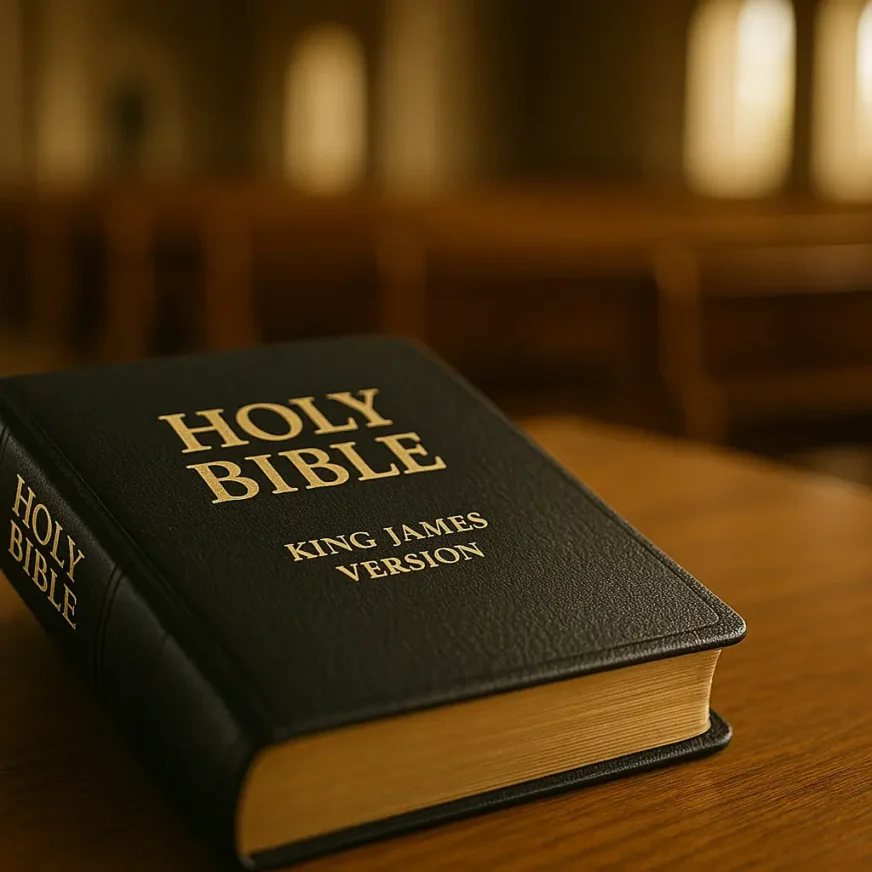For many Christian believers in the United States, the King James Version (KJV) of the Bible holds a unique and revered place in their faith journey. Known for its poetic language, theological depth, and historical impact, the KJV has shaped church traditions, influenced Christian culture, and guided generations of believers. In this article, we explore the significance of the KJV Bible in American Christian churches, and why it remains a trusted and cherished translation.
A Rich Historical Legacy
The King James Version was first published in 1611 under the commission of King James I of England. It was created to provide a unified, accessible, and doctrinally sound translation for English-speaking Christians. Over the centuries, the KJV became the standard Bible in many churches across the English-speaking world, particularly in the United States during the 18th and 19th centuries. It was the primary Bible used by early American settlers, missionaries, and preachers.
Reverence for Language and Style
One of the most distinctive features of the KJV is its majestic, literary quality. Its use of Early Modern English, poetic phrasing, and rhythm has inspired countless sermons, hymns, and devotional writings. Passages such as Psalm 23, John 3:16, and the Lord’s Prayer resonate deeply with believers due to their familiar and elegant wording.
Many churches value the KJV for its formal equivalence translation approach—a method that seeks to closely match the original Hebrew and Greek texts in word and structure. This faithfulness appeals to believers who appreciate a precise, text-based study of Scripture.
Doctrinal Trust and Theological Precision
The KJV is held in high regard for its doctrinal integrity. Its consistent terminology, reverent tone, and traditional theological renderings provide a stable foundation for preaching, teaching, and personal devotion. Many pastors and theologians believe the KJV offers a theologically sound perspective that aligns with historic Christian orthodoxy.
Continued Use in Worship and Preaching
In many churches across the USA, especially among Baptist, Independent Fundamentalist, and Pentecostal congregations, the KJV remains the preferred or exclusive Bible translation for worship services, Sunday school, and Bible study. Its established presence reinforces a sense of spiritual continuity and reverence.
Influence on American Christianity
The influence of the KJV in American Christianity is immense. It has shaped the spiritual vocabulary of generations and influenced the theological discourse of prominent pastors, evangelists, and revivalists. From the Great Awakenings to modern-day preaching, the KJV has served as a cornerstone of American Protestant identity.
Challenges and Considerations
While beloved by many, the KJV’s archaic language can be a barrier for modern readers unfamiliar with 17th-century English. Some churches provide side-by-side comparisons or use updated editions like the New King James Version (NKJV) to maintain tradition while improving readability.
Why Many Still Choose the KJV
- Doctrinal Consistency: Its traditional renderings reinforce core theological beliefs.
- Historical Authority: Trusted for over 400 years by churches, scholars, and laypeople.
- Linguistic Beauty: The cadence and tone enhance memorization and public reading.
- Faith-Based Preference: Some believers view it as the most spiritually authentic version.
The King James Version continues to be a beloved and vital part of Christian life in the USA. Its legacy of doctrinal faithfulness, literary excellence, and spiritual power makes it more than just a translation—it is a treasured instrument of God’s Word. For believers who value tradition, reverence, and time-honored truth, the KJV remains a guiding light in worship, study, and spiritual growth.
